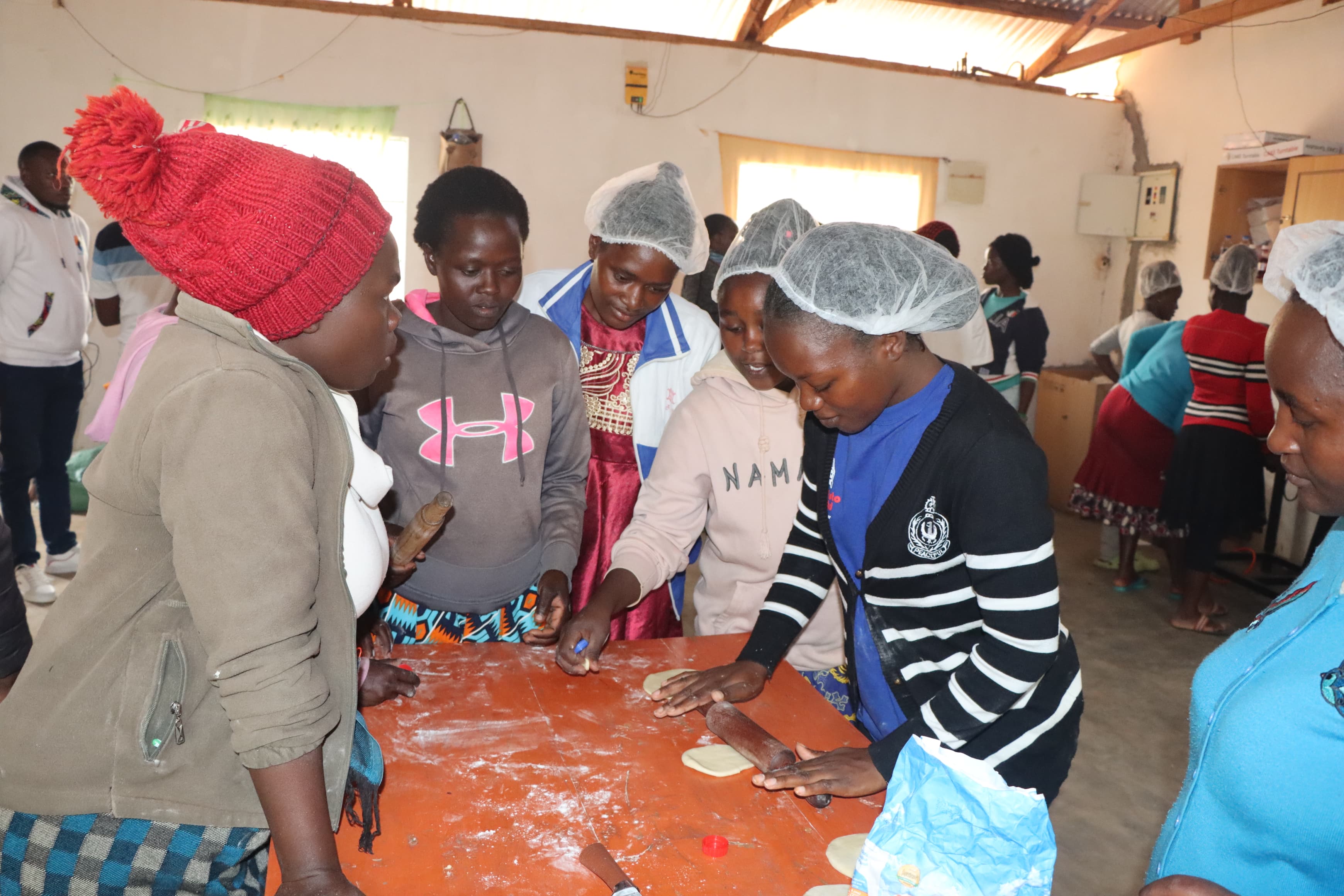 Youth being trained on Baking under the Asili Project. Photo Andrew Mbuva
Youth being trained on Baking under the Asili Project. Photo Andrew Mbuva
By Andrew Mbuva
In a bid to equip young people in Makueni County with practical life skills and economic resilience, Jumuhisha Initiative, a Community-Based Organization (CBO), has rolled out a three-year youth empowerment program dubbed the Youth Asili Project.
The initiative is currently underway in Kaiti and Mbooni sub-counties and targets hundreds of young people through phased, three-month training cohorts.
Each cohort consists of 25 trainees, drawn from local villages and trained in either baking or poultry farming. The trainings are being held at selected centers including Kyuasini CTTI, with a strong emphasis on community-driven development and sustainable livelihoods.
“Community-driven resilience considers all stakeholders as equal players of change, and so we are proud to walk with everyone through this process,” said Karen Munyae, the Director of Jumuhisha Initiative.
She emphasized that the project not only imparts technical skills but also encourages immediate community engagement.
“Whatever is baked—whether it's bread, cakes, or doughnuts—is sold within the community to ensure money circulates locally. This approach empowers the trainees and directly benefits the neighborhoods they come from,” she added.
Beyond skill acquisition, the project is designed to foster self-reliance among the youth. Many of the participants are already setting up small businesses—hawking baked goods in villages or starting poultry farms. Some are taking the initiative further by teaching neighbors how to properly care for chickens, thereby extending the ripple effect of the program.
Poultry trainees are also receiving specialized instruction on the production of high-protein feeds, including cost-effective alternatives like Azolla and Black Soldier Fly larvae, reducing dependence on commercial feed suppliers.
According to Ernest Kimilu, the Fund Manager for the project, Jumuhisha Initiative plans to invest about Ksh 8 million in the program this year alone.
“We are asking the local community to support this project by being the first buyers of the products being made by the learners. Your support is the engine that will keep this project running sustainably,” he urged.
Local leadership is also voicing strong support for the initiative. Sidney Musyoki, the Assistant Chief of Kyusani, called on both the school administration and the county government to integrate the project outcomes into long-term planning.
“I challenge the administration of Kyusani County Technical and Vocational Training, together with the County Government, to ensure that once this project is completed, it is sustained,” said Musyoki. “The machines Jumuhisha will leave behind should not gather dust. Let catering and poultry be added as formal courses so that the equipment continues to benefit future generations.”
Musyoki also challenged community members to utilize the newly trained youth for local services.
“When we have events, there’s no need to hire catering services from far when we have our own properly trained youth right here,” he said.
As the Youth Asili Project progresses, it offers a powerful model of how targeted, community-rooted initiatives can spark real change—turning vulnerable youth into self-sufficient entrepreneurs and active change-makers within their own villages.